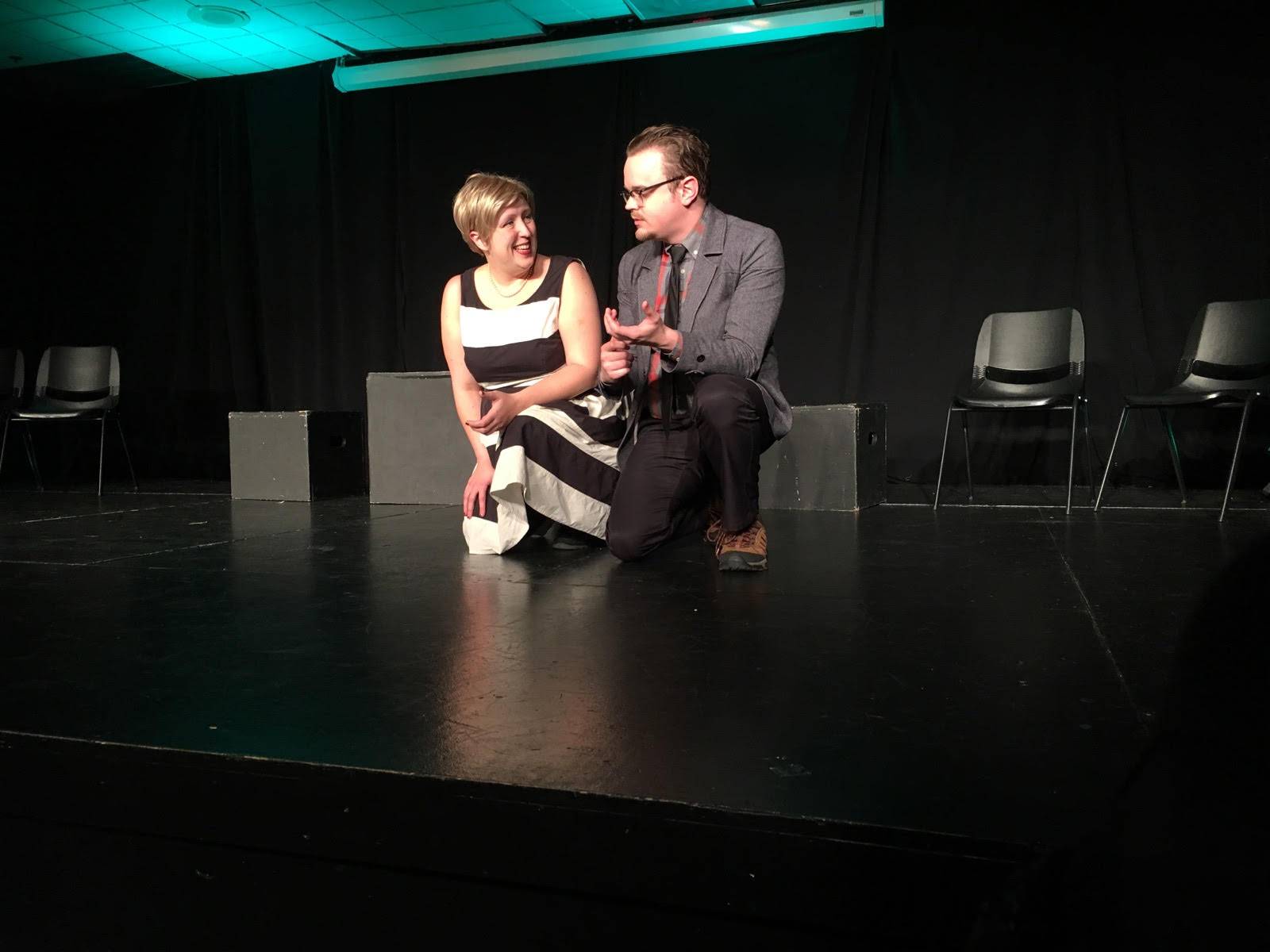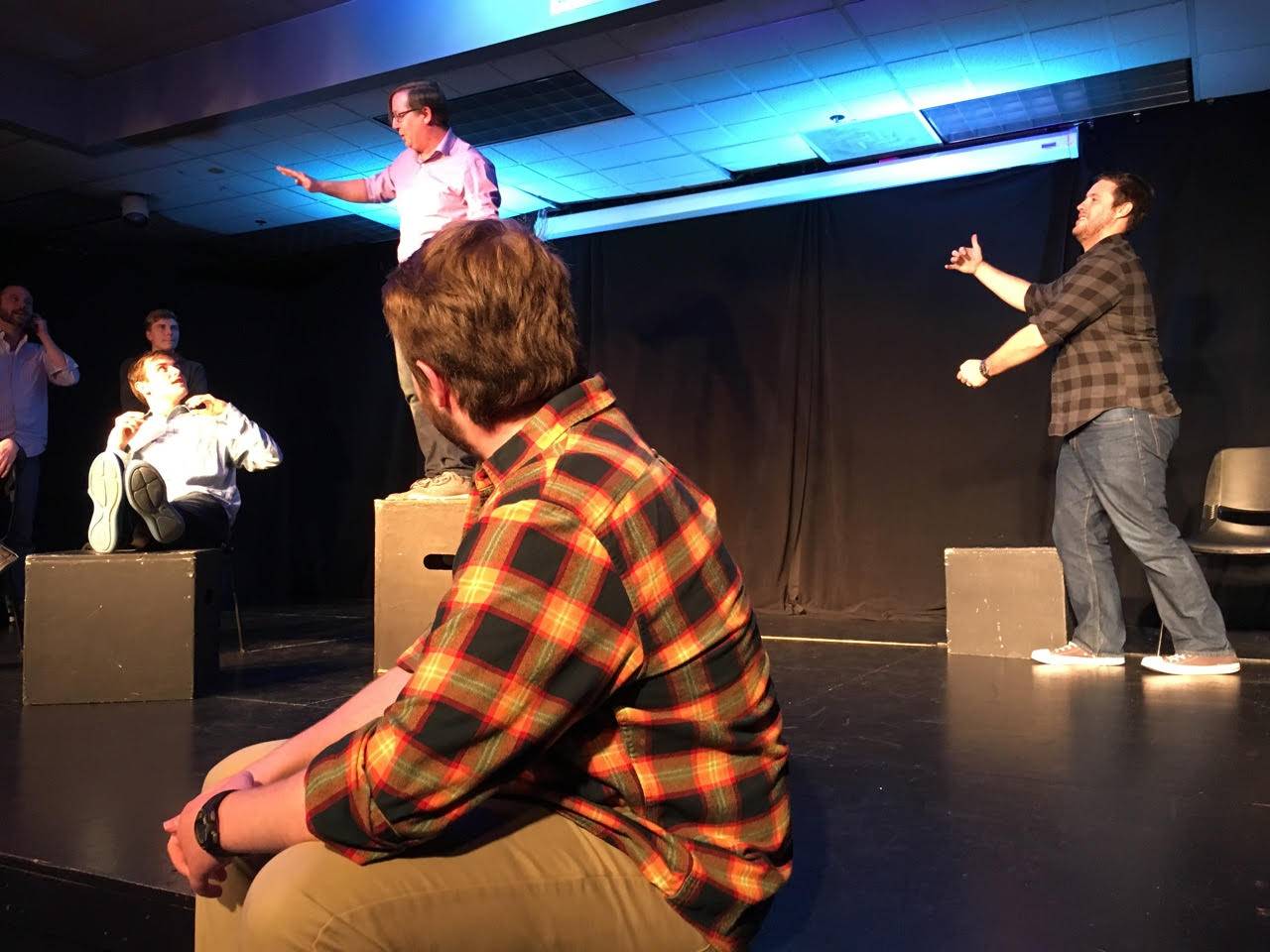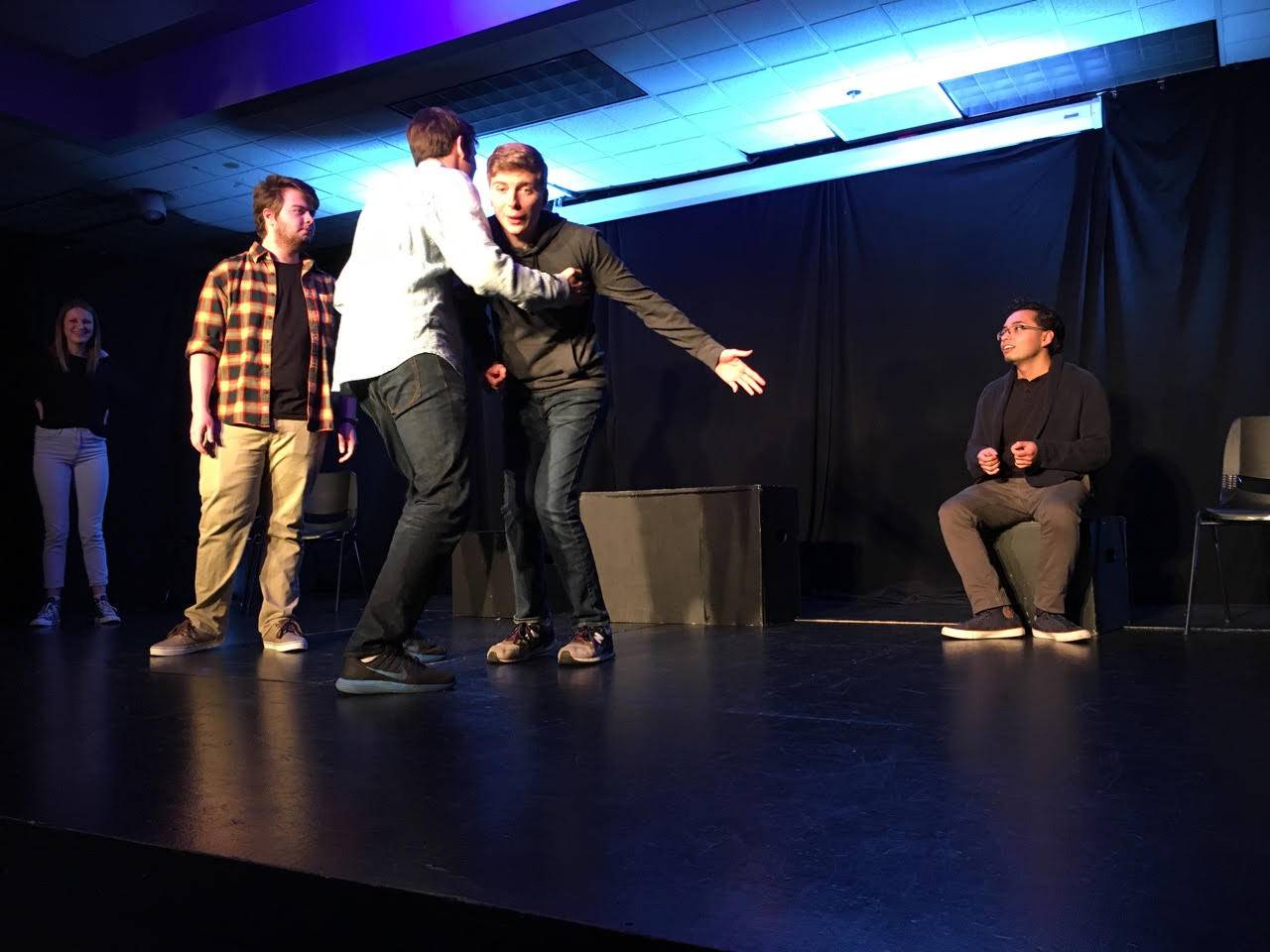I’ve heard it said that every night of any theatrical performance is different, depending on the audience, general cast morale, and which parts of the show go either very wrong or very right. I doubt that whoever said this was thinking of improv shows, though the saying seems more applicable here: every performance is truly unique and can change at the drop of a hat, depending on what pops into a performer’s head at any given moment.
Having never been to a fully improvisational performance, I wasn’t quite sure what to expect when I walked into the SODO Theatre for the second night of the eighth C-U Zoo Improv Festival. One thing I definitely wasn’t anticipating was the diversity of performance styles; each troupe based their performances on a different concept, and the performers themselves each brought a unique style of acting and sense of humor to the stage.
B(Minus), a collaborative troupe by members of Froman Improv and Zoo Improv, kicked off the night with the first performance. They began their set by screening the first several minutes of the acclaimed masterpiece Howling II: Your Sister Is a Werewolf, which featured a cast of horror tropes including the brother of the titular werewolf, a spunky reporter, two murderous werewolves, and a paranormal investigator played by a rather despondent Sir Christopher Lee.
Following the end of the clip, it was up to the performers to construct the rest of the story — presumably without any of them having actually seen the rest of it. Each of them adopted a role on the fly and dove into creating the narrative. Double- and triple-casting abounded, with most of the actors switching roles from scene to scene to fit whatever hilariously over-the-top event was occurring at the time.
 While their ability to create a consistent story and keep their roles was impressive, one thing that really struck me was how energetic their performance was. Of all the groups, theirs used the most physical comedy in their acts, which almost always got a laugh out of the audience. They seemed like they were having a fantastic time, and the fun was contagious.
While their ability to create a consistent story and keep their roles was impressive, one thing that really struck me was how energetic their performance was. Of all the groups, theirs used the most physical comedy in their acts, which almost always got a laugh out of the audience. They seemed like they were having a fantastic time, and the fun was contagious.
The second group, Chicago-based Tricky Mickey, was a three-person set with a very different kind of energy. Opening with a spelling bee and shifting through a series of scenes, their performance style was surprisingly clean and well coordinated for skits composed on the fly, particularly in the shifts between scenes. While no one entered or exited the stage, they clearly distinguished scenes through movement and shifting personas. They had a good sense of comedic timing, and seemed to collectively know when a scene should end and another begin.
Their self-referential comedy relied heavily on repetition and dark humor and built up momentum throughout the act. While I genuinely enjoyed a lot of their jokes, however, some of them were repeated so often that they began to feel stale and the scenes felt like they were dragging out rather than developing further. Their short-form series of scenes was great in this respect, however, as the shifts in scene and character gave them new comedic ground to break, and the references to older jokes felt fresher in new settings.
Spicy Clamato, the University of Illinois’ improv group, was the third to take the stage. Easily the largest of the groups present, their set consisted of a series of improv games and short scenes. After asking the audience for a cue word (barber), they opened with a game called “185,” in which each member of the troupe told one of a quick-fire series of terrible-but-funny jokes about 185 barbers walking into a bar. This was a hit with the audience, and was quickly followed by “I Like My Significant Other Like I Like My ___” (shoes) and “Sex With Me Is Like ___” (being a Cubs fan — most memorably, “it happens once every 108 years”).
After the opening games, they launched into what they called the “Collage,” a series of skits generally performed by two to five actors at a time. The content of their sets ranged widely depending on which actors participated, ranging from bank robbers with imaginary Daffy Duck hats and a Millard Fillmore mask to a freestyle rap about James Buchanan.
While the scenes played out, the rest of the troupe stood in a semicircle on stage, occasionally interacting with the active performers by either stepping in as a new character to the scene or by interjecting corrective suggestions, generally either “more specific” to either have the actor add humor to a statement through details, or “should’ve said” to have them change the punchline of a joke. While the character insertions were welcome and often helped a scene move forward when it had stalled, the interjections made the scenes feel more like an exercise than a performance. Still, it fit with the group’s casual and interactive atmosphere, and their set was enjoyable to watch.
After Spicy Clamato wrapped it up, Pancake Dinner stepped up for the final set of the evening. Their performance was a long-form piece, and unlike the rest of the troupes performing that night, they created a set with a single plotline and the actors playing same set of characters throughout. Rather than switching between roles, the actors focused on developing a single character through their connections and interactions with the rest of the cast. While their interactions were genuinely hilarious, the characters didn’t feel as though they were only being played for laughs, and I was genuinely invested in them and their relationships.

The story’s continuity was broken only once, when one of the actors forgot that their character knew another one, but the blooper was quickly played off. That impressed me in itself; creating a coherent narrative with developed characters, complex relationships, and good acting is no easy feat, particularly if you’re inventing the story as you go along.
After the final set, members from all the improv troupes, including those from the previous night, were invited onstage for a short session of open improv. All of the actors onstage participated in a series of short-form scenes, either with a few other actors or as a group. The atmosphere was very open and creative, and it was great to watch all of the troupes’ different styles interact with one another. Much like the rest of the show, the improvisations were fluid and natural sometimes and a little awkward at others, but it was always fun.
If you’ve never seen an improv show, I recommend seeking one out for the experience. You’ll probably laugh, and you’ll definitely be entertained, but beyond that you never know what to expect!
A list of this weekend’s performers, including Zoo Improv and others, can be found here.








